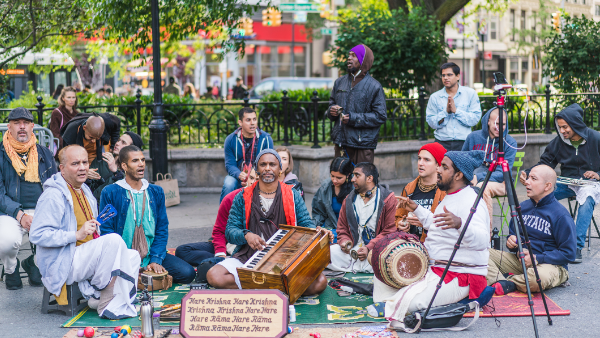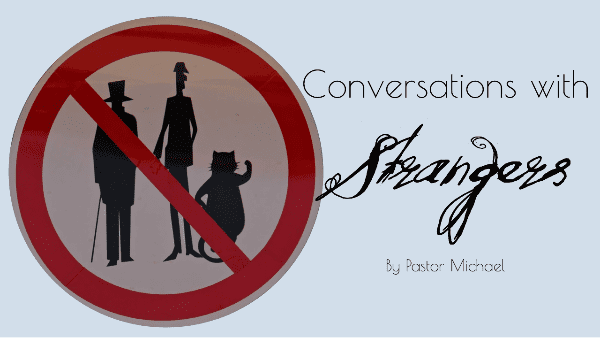O’Hare airport in 1973 was a wonderland to a ten-year-old, with its sweeping, arched ceilings and people blurrily buzzing about accompanied by the cacophony of 1001 simultaneously spoken languages. My dad, mom, and I were there with Aunt Sue and, I’m sure many other relatives from the big Catholic side of my family, dropping Uncle John off for his year-long motorcycle trek across Europe and India. Flying was still relatively new for the middle class, and it was my first time in an airport, so we were all a bit dazzled.
Uncle John was a singularly spectacular individual. He devoted his life to teaching earth science, and while he thought religion was a con and God a hoax, he was one of nature’s greatest evangelists. I always saw God in nature; he saw evolution. I asked, “What’s the difference?”
In the public school system, my uncle trained thousands of minds to think critically. He nurtured acres of natural Illinois prairie back to life. He took my brothers, cousins, and me on countless rock-hounding expeditions across the United States, stoking my early and continued interests in paleontology, chemistry, genetics, astronomy, physics, and evolution.
But before all that, Uncle John was a free-spirited hippie who decided to travel across Europe on a motorcycle, and our big Catholic side of the family was there to see him off.
I’m sure nobody other than I was surprised when, as we were walking to the flight gate and I started talking to the nice bald men agleam in their saffron robes, Uncle John, in one swift, smooth motion, picked me up by the scruff of my shirt and tucked me under his arm like a football while alarmingly shouting “Nope!” As he carried me the rest of the way to the gate, I remember in my humiliation, wondering, what’s the harm in talking to strangers?
In hindsight, I suppose it was naïve for a ten-year-old to talk to men in golden robes at a place like an international airport, but it’s not like they were asking me to come into their van for some candy. And frankly, even though I am now more alert to the dangers lurking in the shadows, I’m still easily stopped by all sorts of people, and invariably, I enjoy our chats very much. I like talking to strangers, and I think it’s a workable way to mend wounds by acknowledging each other as merely decent human beings and listening to others’ stories.

I think about my youthful interaction with the Krishnas a lot, especially living in New York, because they like to hang out at Union Square, making relatively decent if somewhat tedious music. I enjoy listening to them, and whenever they take a break, which is far too rare, we occasionally share reflections about God, the Universe, and everything. Also, their chanting drowns out the Evangelicals screaming on the corner. Lesser of two evils and all that.
Human stories are interesting and unique, each a revelation of God’s journey in our material world. We all have something to learn from everyone else, but we have to be able to hear what others have to say. Our personal and communal histories are amazing, mind- and soul-opening stories about a God who exists to experience what we experience and, many of us hope, to push as ever toward acts of loving-kindness and a peace-filled, cooperative world.
Your life is God having a human experience! And so it is for your neighbor, and their families, and everyone around the world, in all cultures, religions, and sociopolitical economies.
Why are we so afraid of each other when we are all so fascinating?
Listening to the stories of each other’s lives opens our hearts and minds to the realization that the creative, Conscious Universe is manifest in all of us and everything that surrounds us. We’re not strangers, we’re family. But it takes Wisdom to awaken us to that new way of thinking and eliminate our fear of talking — and listening — to each other.
Proverbs 8:1–11 (CEB)
Doesn’t Wisdom cry out an Understanding shout? Atop the heights along the path, at the crossroads she takes her stand. By the gate before the city, at the entrances she shouts: I cry out to you, people; my voice goes out to all of humanity. Understand skill, you who are naive. Take this to heart, you fools. Listen, for I speak things that are correct; from my lips come what is right. My mouth utters the truth; my lips despise wickedness. All the words of my mouth are righteous; nothing in them is twisted or crooked.
All of them are straightforward to those who understand, and upright for the knowledgeable. Take my instruction rather than silver, knowledge rather than choice gold. Wisdom is better than pearls; nothing is more delightful than she.
The Jewish people of the First Testament called the unifying thread of diversity “Wisdom,” with a capital ‘W,’ and personified it as the divine feminine through which God births and sustains our reality. We find the skills necessary to transform naivete into hope through Wisdom. When we realize every person is created through God’s Wisdom, we understand nobody is a stranger. We are spiritually and materially related.

Wisdom SHOUTS understanding at the city gate entrance, a central hub of activity in the ancient world. People from all over the Ancient Near East were here, speaking many languages and interacting with people from a mind-boggling variety of traditions, whose customs shaped expectations and often led to confusing exchanges. One person’s hearty palm-up hello is another’s insult to his mother. To avoid the problems cultural misunderstandings might cause, Wisdom encourages us to learn about each other. But we can’t do that if we’re afraid to talk to strangers and, more importantly, listen to them.
Uncle John returned from his journey emaciated and exhausted but filled with enthralling tales about all the kind strangers he had met, all willing to help a crazy American. Uncle John remembered their stories, so even as I lived vicariously through his trip, I learned how people did things outside the U.S. He understood and was one of the first people to teach me about the inherent beauty of being human. A concept, perhaps, impossible to truly comprehend unless we’re willing to talk — and listen — to strangers.
Question: What have you discovered in conversations with strangers?


